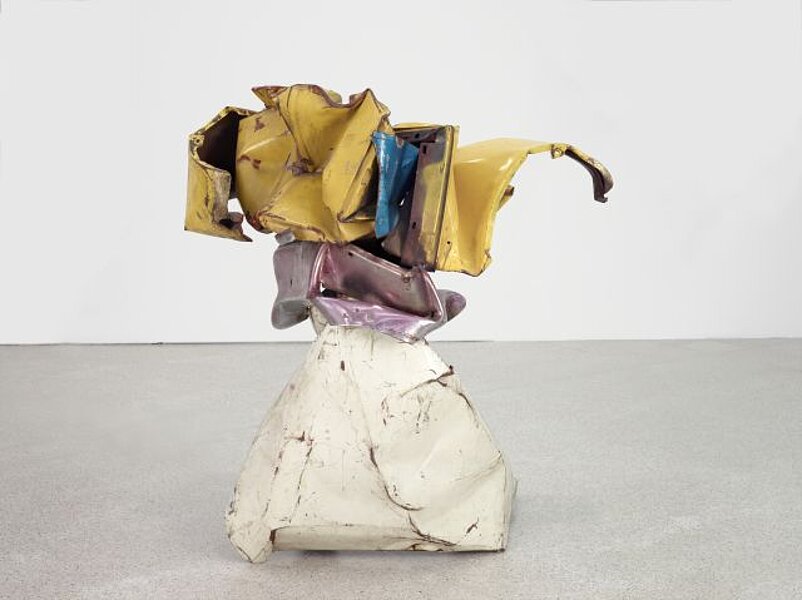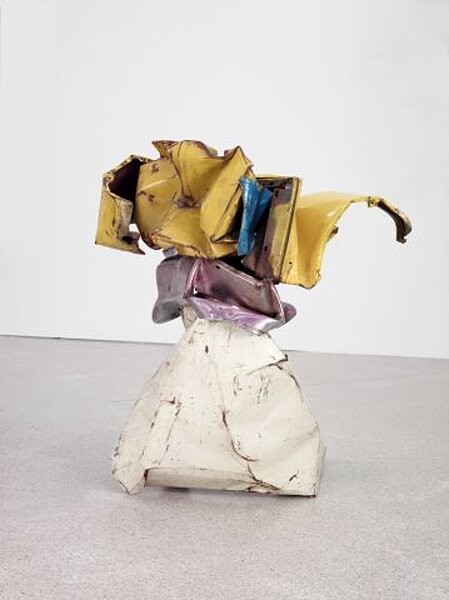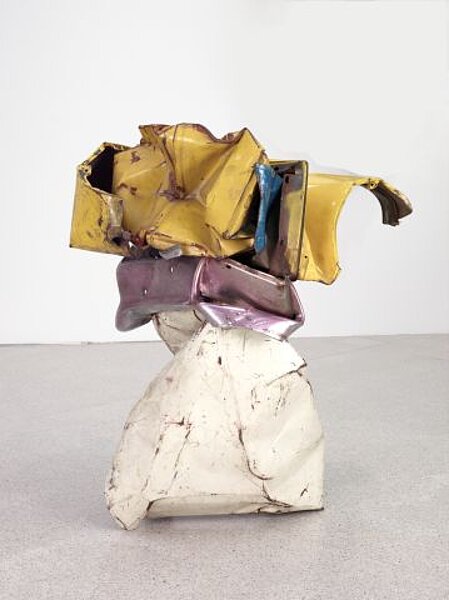
Chamberlain, John
Trixie Dee
1963
| Object description | Object made from automobile parts |
|---|---|
| Object category | sculpture |
| Material | |
| Technique |
P 120/1:
sculpting
P 120/2:
sculpting
|
| Dimensions |
Total size:
height: 133 cm,
width: 110 cm,
depth: 119 cm
P 120/1:
height: 82 cm,
width: 109 cm,
depth: 75 cm
P 120/2:
height: 71 cm,
width: 110 cm,
depth: 105 cm
|
| Year of acquisition | 1978 |
| Inventory number | P 120/0 |
| Creditline | mumok - Museum moderner Kunst Stiftung Ludwig Wien, ehemals Sammlung Hahn, Köln |
| Rights reference | Bildrecht, Wien |
| Further information about the person | Chamberlain, John [GND] |
| Literature |
Museum moderner Kunst Stiftung Ludwig Wien I Love Pop. Europa-Usa anni '60. Mitologie del quotidiano New York. New York. Cinquante ans d'Art, Architecture, Cinéma, Performance, Photographie et Vidéo Coca-Cola und Co.Die Dingwelt der Pop Art und die Möglichkeiten der ikonologischen Interpretation Museum der Wünsche New York New York.Fifty Years of Art, Architecture, Cinema Performance, Photography and Video Grenze loos en vrij : Von Appel tot Basquiat |
Asked why he used wrecked car parts for his sculptures, American artist John Chamberlain answered that Michelangelo had a heap of marble behind his house and that he, Chamberlain, found a heap of car wrecks there instead. In 1957 Chamberlain began to weld sculptures out of the dented and colourful car parts. In doing that he founded an aesthetic style that is typical for him and which is often described as the implementation of abstract expressionism in three dimensions. Instead of using wood, bronze, or stone which up till then was customary, Chamberlain employs a material which simultaneously represents contemporary American culture: mass production and consumerism and anticipates the ideas of Pop Art. At the same time the use of the everyday material brings Chamberlain close to Nouveau Realisme, the art movement founded by Pierre Restany in Paris in 1960 which tried to bring art and life together. But when taking a closer look at Trixie Dee – wouldn’t you agree it looks a little bit like an angel or like a contemporary version of the Nike of Samothrace?
© mumok – museum moderner kunst stiftung ludwig wien


